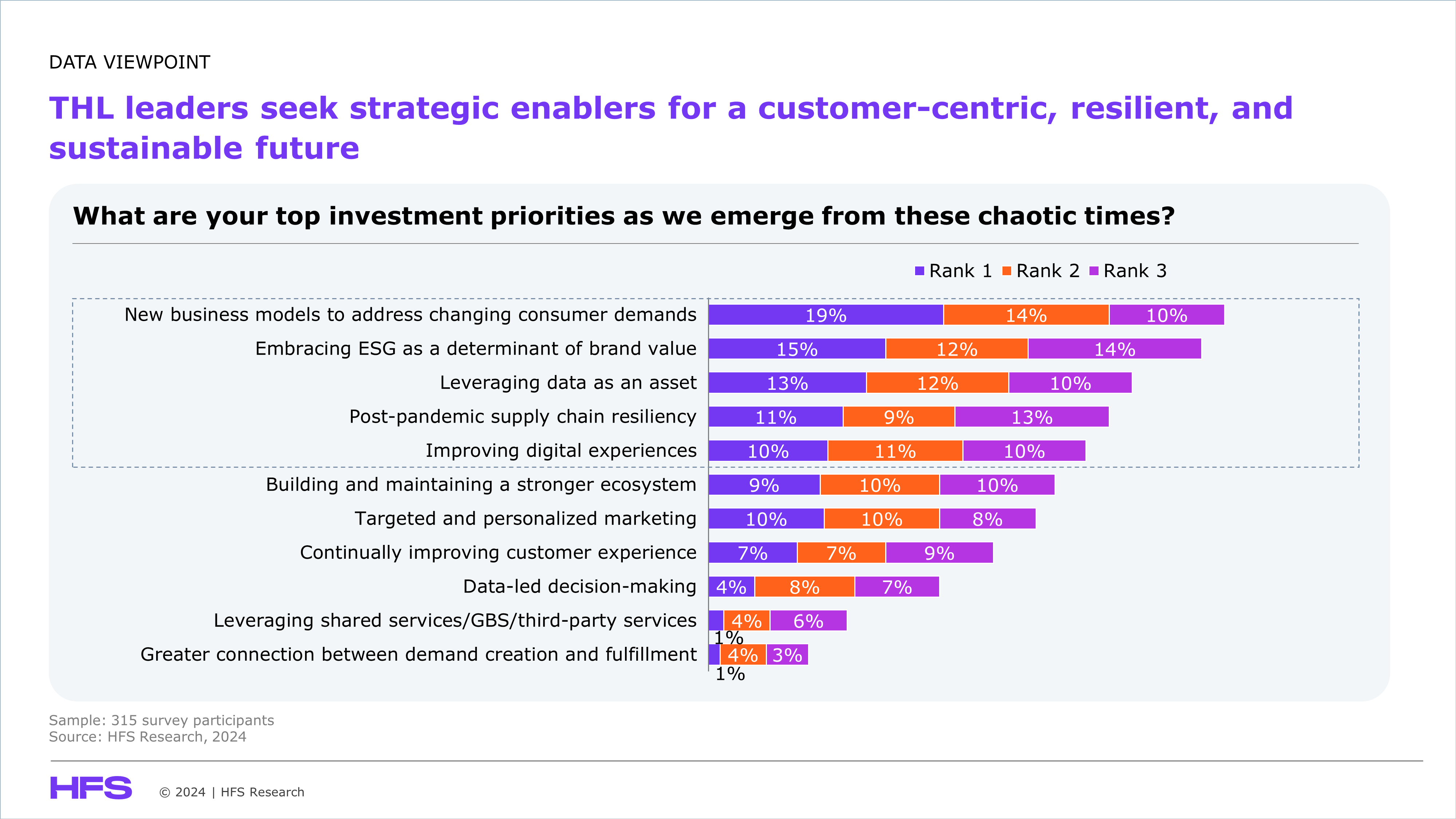
Leaders in the travel, hospitality, and leisure (THL) sectors have largely adapted to the “new normal” post-COVID, shifting their focus to addressing long-term challenges. With consumer demands evolving, these leaders are strategically investing to maximize returns and deliver a higher ROI. The five points below topped the list in their investment priorities.
- Finding new business models: THL companies are rethinking their business models to cater to evolving consumer demands. This includes shifting from traditional travel and accommodation offerings to more personalized, flexible, and experiential services. Airline and credit card alliances are examples of how businesses are generating billions in revenue while fostering loyalty with their customers in tandem.
- Embracing ESG: Consumers are now more conscious of their travel choices around environmental and social impact, and brands with strong ESG credentials resonate better with ethically minded customers. Sustainable tourism, eco-friendly accommodations, and socially responsible practices are top priorities. This shift is not just consumer-driven—investors are placing a higher emphasis on sustainability and ethical business practices. To tend to this requirement, THL enterprises are investing in green technologies (e.g., energy-efficient lighting, smart climate control systems, water-saving technologies), sourcing local and sustainable materials (e.g., sustainable aviation fuel), and offering eco-friendly options to guests (e.g., green travel packages).
- Leveraging data as an asset: Data continues to be among the top investment priorities for THL companies, and they are making strategic investments in digital and data infrastructure. Data insights enable companies to tap into customer preferences, understand seasonal trends, and improve operational efficiency. Investments in data infrastructure, GenAI, analytics, and governance are crucial for strategic decision-making, unlocking value, and enabling more personalized and profitable services.
- Developing supply chain resiliency: Supply chain disruptions, particularly in the hospitality and travel sectors, were among the pandemic’s hardest hits. From food sourcing for hotels to aviation fuel shortages, the industry has faced significant challenges. To address these, THL enterprises are focusing on building more resilient and diversified supply chains for future socio-economic and environmental disruptions. These companies are now planning to build a network of backup suppliers and invest in logistics technologies that will be crucial for maintaining operational flexibility.
- Enhancing digital experience: As digital transformation becomes increasingly integral to business operations and customer interactions, enhancing digital experiences remains a key focus for THL enterprises. A seamless digital experience translates to higher customer satisfaction and loyalty. Consumers now expect frictionless, digital-first interactions with brands and improved online booking platforms. Companies that fail to provide seamless digital experiences risk losing out to tech-savvy competitors. THL companies are investing in user-friendly digital platforms that focus on enhancing omnichannel customer engagement, where digital interactions across multiple touchpoints are consistent and personalized.
The Bottom Line: THL leaders must look to the future prioritizing customers, sustainability, data and resiliency.
Leaders are prioritizing investments that foster long-term competitiveness, build customer loyalty, and ensure operational resilience in the face of future uncertainties. Service providers must act as strategic enablers for THL companies by offering tailored, technology-driven solutions that address the industry’s evolving needs. From customer-centric digital experiences to resilient supply chains and ESG integration, providers that align their offerings with the core investment priorities of THL enterprises will position themselves as essential partners in the sector’s recovery and growth.
